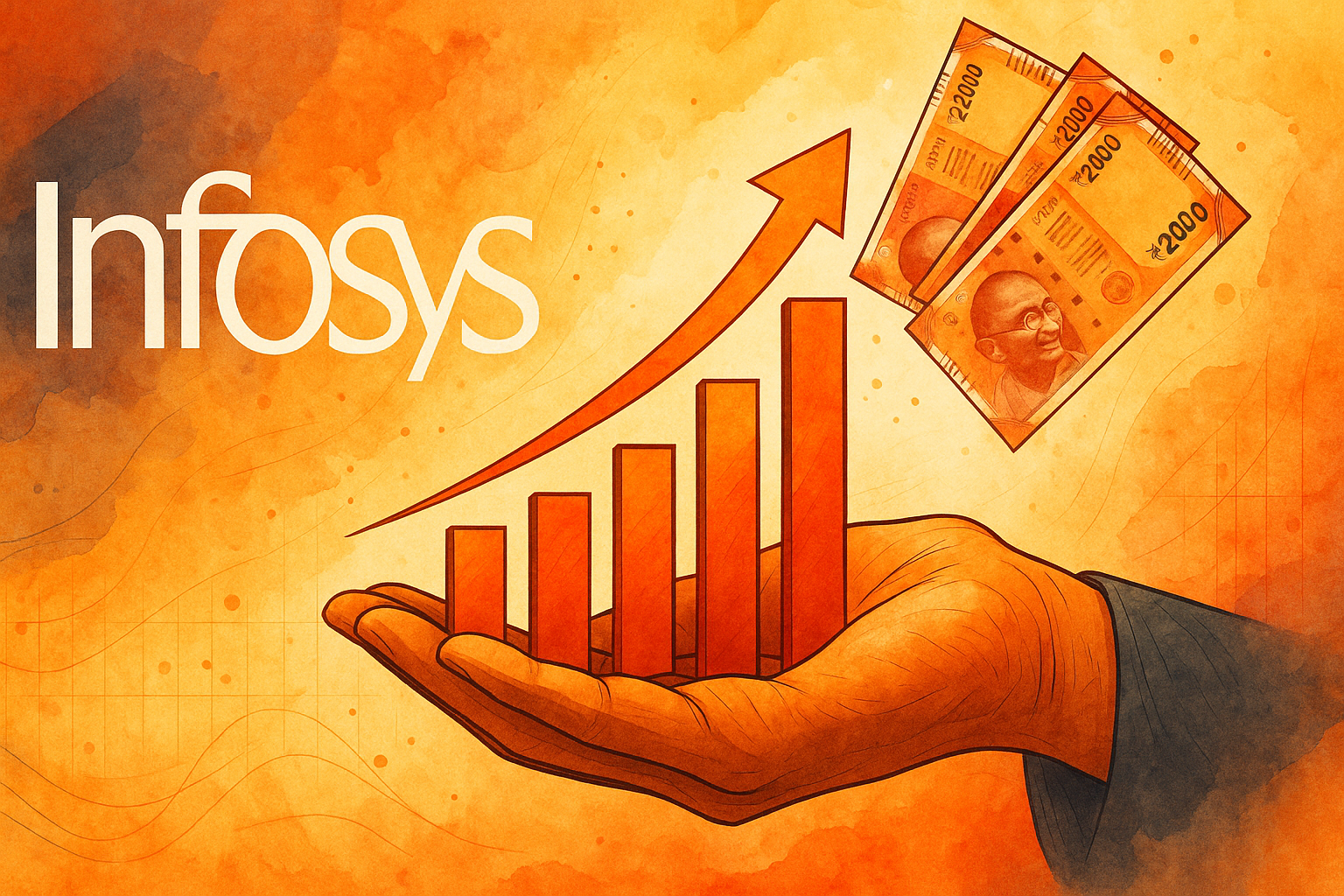Markets on Friday reacted positively to Infosys Ltd’s ₹18,000-crore share repurchase plan, pushing the stock 1% higher on the NSE. This marks Infosys’s fifth buyback since 2017, underscoring a strategy that India’s top IT firms may increasingly lean on to reassure investors during turbulent times. Yet, analysts and industry watchers are asking a sharper question: Is Infosys prioritizing shareholder cheer over future-readiness in the age of artificial intelligence?
The Allure of Buybacks
Share repurchases are among the easiest tools for companies to boost market performance, especially in choppy conditions. They reduce the number of outstanding shares, potentially lifting prices while signaling confidence from management. As Phil Fersht of HFS Research notes, buybacks reveal slowing growth but also convey that leadership can deliver consistent returns. With Infosys’s latest move, peers like TCS, Wipro, HCLTech, and Tech Mahindra may be expected to draw from the same playbook.
Since April 2017, Infosys has returned a staggering ₹1.52 trillion ($17 billion) to shareholders through dividends and buybacks. In comparison, its investments in research and development (₹8,926 crore) and acquisitions (₹11,513 crore) look modest. This skew raises concerns that while capital is being distributed generously, future competitiveness may not be getting equal attention.
Spending Patterns: Dividends vs. Innovation
Infosys’s capital allocation highlights a tension between rewarding shareholders and building for the future. Between FY18 and FY26 (including the announced buyback), dividends and repurchases consistently outweighed investments in innovation. Only nine of its 20 acquisitions were directly tied to next-gen domains like cybersecurity, analytics, or consulting. Others were largely geographical expansions or reinforcements of existing offerings.
For instance, acquisitions like Australia’s Versent Group (cloud services), the US’s Blue Acorn iCi (customer experience), and Germany’s Oddity (digital marketing) expanded Infosys’s digital footprint. But the company has yet to deliver a large, transformative deal that reshapes its capabilities in the AI era.
The Generative AI Disruption
Infosys’s operating margin has slipped 360 basis points over eight years, from 24.7% in March 2017 to 21.1% in March 2024. While CEO Salil Parekh attributes this to strategic investments rather than pricing pressure, the broader reality is unavoidable: generative AI is rewriting the IT services playbook.
Since the launch of ChatGPT in November 2022, Infosys’s stock has dropped nearly 8%, with TCS showing a similar decline. Jefferies estimates that AI could drive a 20% revenue deflation in IT services between FY25 and FY30, primarily by automating high-margin services and delaying client spending. Growth in the sector may slow to just 1.5–3% CAGR over 2024–29, with opportunities from AI materializing later rather than sooner.
Global peers are already getting more transparent and aggressive. Accenture has disclosed $7.1 billion in GenAI-related business since September 2023, while IBM has won $7.5 billion. Infosys, in contrast, does not quantify AI-driven revenues, leaving investors uncertain about how prepared it is for the disruption.
Competitive Positioning
Despite these concerns, Infosys has outpaced TCS in growth in six of the last eight years, although HCLTech has fared better in five of those same years. For FY26, Infosys has nudged up its revenue guidance to 1–3% growth in constant currency, signaling cautious optimism despite headwinds.
Competitors also highlight contrasting strategies. TCS, though traditionally conservative in acquisitions, has spent lavishly on shareholder returns—₹2.95 trillion since FY17. HCLTech has taken a more balanced route, investing $3.9 billion in acquisitions and platforms, while still returning ₹72,492 crore to investors. Infosys, in this mix, appears generous with capital returns but conservative on big bets.
A Balancing Act Ahead
Infosys’s latest buyback offers reassurance to investors, but it also reveals a strategic hesitation: the company is yet to place large, visible bets on AI and disruptive technologies. With generative AI threatening to erode revenues across the sector, the long-term challenge for Infosys lies in balancing immediate shareholder satisfaction with future readiness.
The firm’s ability to pivot—from rewarding shareholders to aggressively investing in next-gen innovation—may well determine whether it thrives in the AI era or falls behind more daring rivals. For now, the buyback is a vote of confidence. But the unanswered question remains: confidence in today’s value, or in tomorrow’s vision?
Feel free to share your experiences and insights in the comments below. Let’s continue the conversation and grow together as a community of traders and analysts.
By sharing this experience and insights, I hope to contribute to the collective knowledge of our professional community, encouraging a culture of strategic thinking and informed decision-making.
As always, thorough research and risk management are crucial. The dynamic nature of financial markets demands vigilance, agility, and a deep understanding of the tools at your disposal. Here’s to profitable trading and navigating the election season with confidence!
Ready to stay ahead of market trends and make informed investment decisions? Follow our page for more insights and updates on the latest in the financial world!
For a free online stock market training by Yogeshwar Vashishtha (M.Tech IIT) this Saturday from 11 am – 1 pm, please sign up with https://pathfinderstrainings.in/training/freetrainings.aspx
Experience profits with my winning algo strategies – get a free one-month trial with ₹15 lakh capital! – https://terminal.algofinders.com/algo-terminal
Disclaimer
This article should not be interpreted as investment advice. For any investment decisions, consult a reputable financial advisor. The author and publisher are not responsible for any losses incurred by investors or traders based on the information provided.


